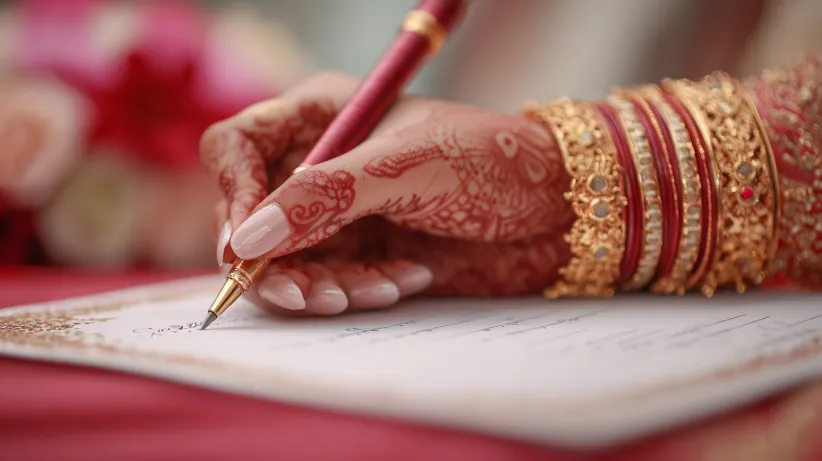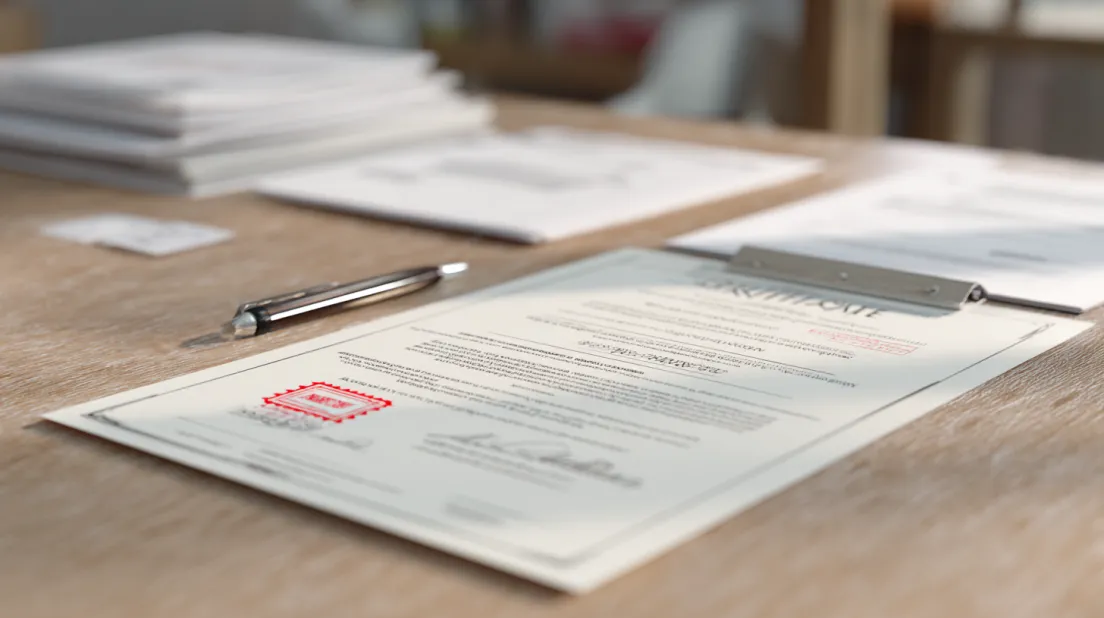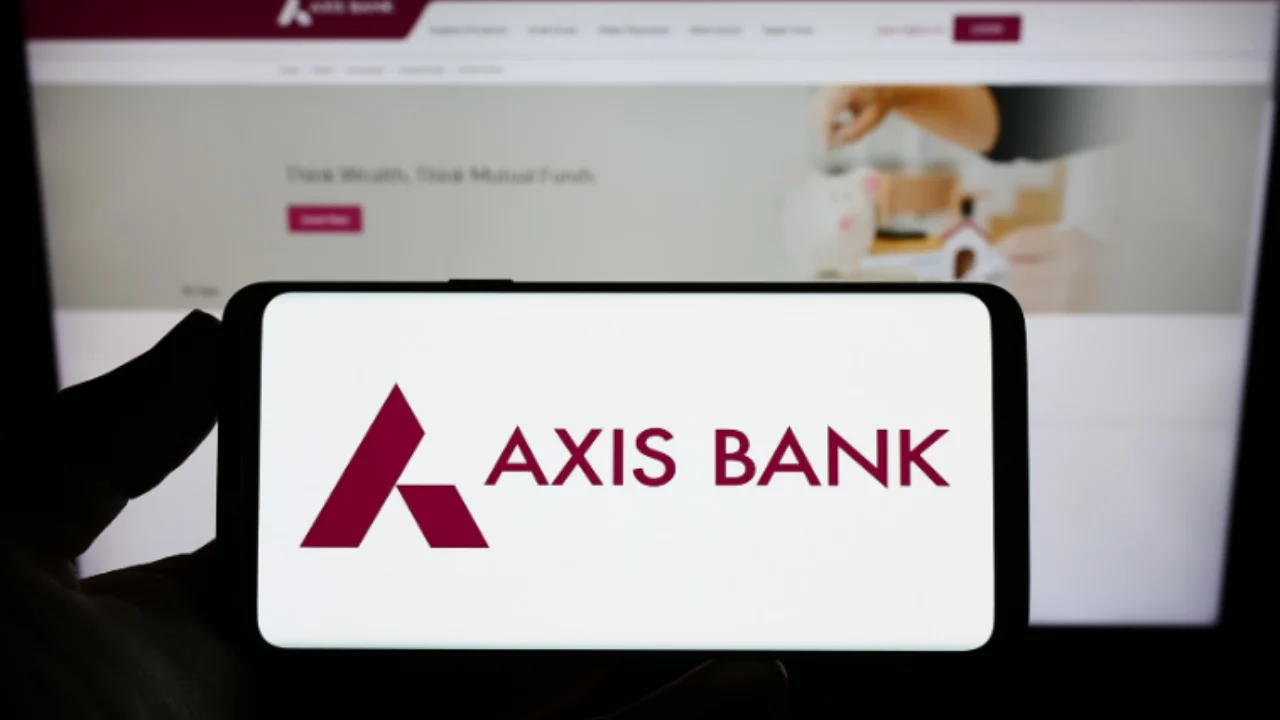For a Non-Resident Indian (NRI), getting married, whether in India or abroad, involves specific legal procedures to ensure the union is officially recognised in India and internationally. The NRI marriage registration is not just a formality; it is an essential legal requirement that serves as official proof of the marriage, which is critical for spouse visas, immigration, inheritance rights, and many other legal matters. This guide provides a clear and comprehensive overview of the NRI marriage registration procedure, the laws that govern it, and the documents you will need to prepare.
Applicable Laws for NRI Marriages
In India, the registration of an NRI marriage is governed by different laws, depending on the religion, nationality, and preferences of the couple. The three primary acts that cover these marriages are the Hindu Marriage Act, 1955, the Special Marriage Act, 1954, and the Foreign Marriage Act, 1969. Understanding which law applies to your situation is the first step in the process.
Documents Required for NRI Marriage Registration
To ensure a smooth and hassle-free registration process, it is crucial to have all the necessary documents prepared in advance. Here is a general list of documents typically required.
Unbeatable Price 5-Star Rated Partner! 2200+ Shades! Top Quality Paint Free Cancellation!

Get a rental agreement with doorstep delivery

Find the BEST deals and get unbelievable DISCOUNTS directly from builders!

5-Star rated painters, premium paints and services at the BEST PRICES!
- A completed application form, duly signed by both the bride and the groom.
- Valid passports of both partners (essential for NRIs and foreign nationals).
- Proof of address in India and the country of residence.
- Proof of date of birth for both partners (e.g., birth certificate or 10th-grade marksheet).
- Recent passport-sized photographs of both individuals.
- Photographs of the wedding ceremony (if the marriage has already been solemnised).
- The wedding invitation card (if available).
- Affidavits from both parties confirming their marital status (unmarried/divorced) and willingness to marry.
- A divorce decree in case of a divorcee or a death certificate of the former spouse in case of a widow or widower.
- A No Objection Certificate (NOC) or a single-status affidavit from the respective embassy for foreign nationals.
Step-by-Step Process For NRI Marriage Registration in India
The NRI marriage registration in India follows a structured legal procedure. The steps can vary slightly depending on whether you are registering an already solemnised religious marriage or conducting a new civil marriage.
- Step 1: Determine the applicable law for your marriage (Hindu Marriage Act or Special Marriage Act).
- Step 2: File a ‘Notice of Intended Marriage’ with the Marriage Registrar in the district where at least one of the partners has resided for at least 30 days.
- Step 3: The Registrar will publish the notice for a period of 30 days to invite any objections to the marriage. This is mandatory under the Special Marriage Act.
- Step 4: After the 30 days, if no objections are received, the couple must appear before the Marriage Registrar on the appointed date.
- Step 5: Both partners and three witnesses must be physically present during the registration.
- Step 6: All parties, including the couple and the witnesses, will sign the official marriage register in the presence of the Registrar.
- Step 7: The Marriage Registrar will then issue the official Marriage Certificate, which is a legally binding document.
Process for Marriages Registered Abroad (Foreign Marriage Act)
If you are an Indian citizen getting married to another Indian or a foreign national in another country, you can register your marriage at an Indian Embassy or Consulate.
- Step 1: File a ‘Notice of Intended Marriage’ with the designated Marriage Officer at the Indian Embassy or Consulate in that country.
- Step 2: A 30-day notice period is required, during which the notice is published to invite any objections.
- Step 3: After the notice period, the marriage is solemnised at the Embassy or Consulate in the presence of the Marriage Officer.
- Step 4: Both partners and three witnesses must sign the official register.
- Step 5: The Marriage Officer then issues a certificate, which is considered valid proof of marriage in India.
Witness Requirement for NRI Marriage Registration
Witnesses play a vital role in the legal validation of a marriage. Their presence confirms that the marriage was conducted willingly by both partners.
- A minimum of three witnesses is required for the registration process.
- All witnesses must be adults (18 years of age or older).
- They must be physically present at the time of the registration or solemnization ceremony.
- Each witness must carry their original photo identification (like a Passport or Aadhaar Card) and proof of address.
- The witnesses will be required to sign the official marriage register as a confirmation of the marriage ceremony.
Timeline and Fees for Marriage
The period for registration of NRI marriages in india can vary. Under the Hindu Marriage Act, an already solemnised marriage can be registered in a few days. However, under the Special Marriage Act, there is a mandatory 30-day waiting period after the notice is filed. The official government fees for marriage registration are very nominal and can vary from one state to another.
Legal Challenges Faced by NRI Couples
While most NRI marriages are successful, some couples may face unique legal challenges due to the cross-border nature of their relationship.
- Documentation Delays: Obtaining the required No Objection Certificate (NOC) from a foreign embassy can sometimes be a time-consuming process.
- Jurisdictional Issues: In the unfortunate event of a matrimonial dispute, determining which country’s laws will apply can become complex.
- Verification complexities: Verifying the marital status, financial background, and professional details of an NRI partner can be more challenging.
- Navigating Immigration Laws: Understanding and fulfilling the spouse visa requirements of the foreign country can be a lengthy and intricate process.
Benefits of Registering an NRI Marriage
Proper and timely registration of your marriage provides a host of legal benefits and is essential for a secure future together.
- It is the undisputed legal proof of your marriage, recognised worldwide.
- It is a mandatory document for applying for a spouse visa for any country.
- It simplifies the process of changing a spouse’s name on official documents like passports.
- It legally establishes the rights of both partners to inheritance and property.
- It provides a strong legal foundation for seeking any matrimonial remedies if required.
How NoBroker Can Help with Affidavit Services?
The NRI marriage registration procedure often requires the submission of several affidavits, for example, a single-status affidavit or a joint declaration. Ensuring these legal documents are drafted correctly and as per the required format is crucial to avoid any rejection or delays. NoBroker’s legal services team can expertly assist you in preparing accurate and properly formatted affidavits, making sure your legal paperwork is in perfect order and ready for submission to the marriage registrar.
Frequently Asked Questions
Ans: The legal age for marriage in India is the same for all citizens, including NRIs. The groom must be at least 21 years old, and the bride must be at least 18 years old.
Ans: While a religious ceremony is culturally recognised, a formal marriage registration and certificate are mandatory for all legal and official purposes, especially for visas and immigration.
Ans: An NOC (or a single-status certificate) is a document issued by the embassy of a foreign national’s country, confirming that they are legally single and there is no objection to their marriage in India.
Ans: Yes, if one of the partners is an Indian citizen, you can get your foreign marriage registered at an Indian Embassy abroad under the Foreign Marriage Act.
Ans: A marriage certificate issued by a competent authority in India is a permanent legal document and is valid for a lifetime.
Recommended Reading


Loved what you read? Share it with others!



